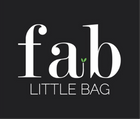
Can You Flush Tampons? (Spoiler: Please Don't)
Short answer: No. Never. Not even the "flushable" ones.
We know—sometimes it feels like the only option, especially when the sanitary bin is overflowing (or missing entirely). But flushing tampons causes chaos you can't see, from your pipes to the ocean. Let's talk about what actually happens when you flush, and why there's a much better way.
Why Flushing Tampons Is a Terrible Idea
Your Plumbing Isn't Ready for This
Tampons are designed to absorb liquid and expand. Toilet paper? It dissolves in seconds. Tampons? They stay intact, travelling through your pipes like tiny plumbing grenades.
One tampon might sneak through. But flush regularly and you're building toward an expensive disaster. Blocked toilet? approx £80-£200 to fix. Damaged septic system? Approx £3,000-£7,000. Suddenly that bin doesn't look so bad.
Meet the Fatberg (Yes, Really)
Ever heard of fatbergs? They're exactly as disgusting as they sound—massive blobs of fat, oil, and flushed items (including tampons) that clog city sewers.
London once discovered a fatberg the size of 11 double-decker buses. It took nine weeks to remove. These monsters cause sewage to back up into homes and streets, creating public health nightmares.
And tampons? They're a key ingredient.
The Ocean Doesn't Want Your Tampons Either
Here's the really sobering part: 40% of people flush their period products. When sewage systems overflow or treatment plants can't catch everything, those tampons end up in rivers and oceans.
Marine animals mistake them for food. Plastic applicators wash up on beaches. What felt like a private bathroom decision becomes very public pollution.
"But I Have No Other Option!"
We hear you. The alternatives have been pretty rubbish:
Wrapping in toilet paper? It leaks, smells, and looks obvious in the bin.
Sanitary bins? Often broken, overflowing, or just... not there. Especially when you're traveling, at festivals, or in poorly maintained public loos.
This is exactly why so many people flush. Not because they don't care—because the alternatives feel impossible.
There's Actually a Better Way
This is why FabLittleBag exists.
It's a disposal bag designed specifically for periods. But unlike wrapping in toilet paper or using dog poo bags, it actually works:
- Seals completely shut → No odour, No leakage
- Opens one-handed → For convenience
- Totally opaque → Complete discretion
- Works anywhere → No bin nearby? Seal it and dispose of it later
- Plant-based → Made from sugar cane and cornstarch, not fossil fuels
At 22p per use (£9.90 for 45 bags), it's the difference between dignity and disaster.
never face that awful "do I flush it?" moment again.
Your Burning Questions, Answered
"But mine say 'flushable' on the box?"
"Flushable" just means it physically goes down the toilet—not that it won't wreak havoc in the sewers. Water companies are begging people to ignore those labels.
"Flushable" just means it physically goes down the toilet—not that it won't wreak havoc in the sewers. Water companies are begging people to ignore those labels.
"I've flushed for years without problems..."
You've been lucky. The damage might be building in pipes you can't see, or you're contributing to community sewage blockages. Plus, every flushed tampon risks ending up in the ocean.
You've been lucky. The damage might be building in pipes you can't see, or you're contributing to community sewage blockages. Plus, every flushed tampon risks ending up in the ocean.
"What if there's literally no bin?"
This is FabLittleBag's superpower. Seal it, pop it in your bag, dispose of it when you find a bin. The seal means no smell, no leakage, no stress.
This is FabLittleBag's superpower. Seal it, pop it in your bag, dispose of it when you find a bin. The seal means no smell, no leakage, no stress.
"Why not just use dog poo bags?"
You could, but they're made from fossil-fuel plastic, don't seal as well, and aren't designed for one-handed use in a cramped toilet cubicle. FabLittleBag was purpose-built for this exact situation.
You could, but they're made from fossil-fuel plastic, don't seal as well, and aren't designed for one-handed use in a cramped toilet cubicle. FabLittleBag was purpose-built for this exact situation.
The Bottom Line
Flushing feels convenient until your toilet backs up, your plumber hands you a £200 bill, or you see tampon applicators washed up on your favorite beach.
You deserve better options than "flush it and hope" or "wrap it in tissue paper and pray it doesn't leak."
FabLittleBag gives you convenience without consequences. Hygienic, discreet, and kind to the planet.
Make the switch now and join thousands of women who've discovered disposal doesn't have to be disgusting or damaging.
